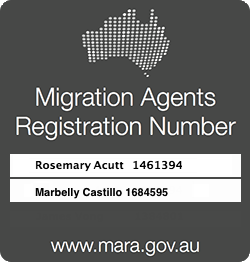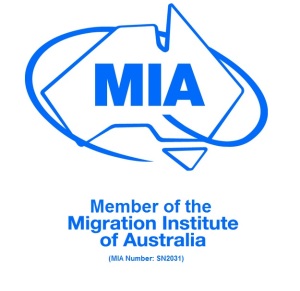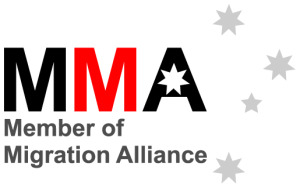Every year, hundreds of thousands of applications are made for a visa to visit Australia.
To be eligible for a Visitor visa, an applicant must genuinely intend to stay in Australia on a temporary basis for a short business visit or for tourism purposes.
All applicants must be able to satisfy the requirements for the grant of a Visitor visa, which requires an applicant to demonstrate that:
- They have sufficient ties to their home country and thus an incentive to return home at the end of their visit.
- That they have access to adequate means to support themselves (and their family where relevant) during their stay in Australia. They could be asked to provide evidence of their adequate means of support.
Pretty simple stuff right?
Wrong.
There are three different categories of Visitor visas. Your country of passport, your physical location and your personal circumstances will determine which of the Visitor visas is most appropriate for you. Within each category of visa, there are a number of different streams, each with its own requirements.
Once an appropriate stream has been determined, you will need to assess whether the application can be lodged online, or whether a paper application will need to be made to your local Australian Embassy. You will also need to determine what evidence to include with your application.
In some circumstances, the application will be processed in Australia. In other circumstances, it will be processed offshore at the Australian Embassy. In most cases, if the application is lodged offshore, in the event of a refusal, the decision cannot be reviewed.
The writer provides the following real life cases as illustrations of inconsistent and unfair decision making by the Department of Immigration.
Case 1
The Visa Applicant was a Citizen of Egypt. She was employed as a Solicitor in her fathers firm, had strong family ties showing an incentive to return home and more than sufficient funds to support herself in Australia.
She applied for a Visitor visa application on her own, but failed to provide appropriate evidence of her personal circumstances. One of the documents provided contained a terrible translation of her employment records, which seemed to indicate she owned her own business. As English was not the applicants first language, she did not pick up on the error in the first instance. The application was subsequently refused.
The Visitor Visa application was re-lodged with appropriate employment evidence and submissions explaining the confusing translation. All evidence pointed to the fact that the Applicant had significant ties to her home country and met all of the visa requirements.
The Application was refused within a matter of days and the decision record was a copy and paste of the previous decision record given to her for the initial Visitor Visa Application, and continued to refer to the existence of the applicant’s alleged business. The decision did not take into account any of the fresh evidence submitted. The decision was not reviewable.
Case 2
The Visa Applicant had been to Australia on numerous occasions as a visitor and had complied with her visa conditions on every occasion. The Visa Applicant was engaged to an Australian Citizen and made a valid application for an offshore prospective marriage visa (at a staggering cost of $7000 in application fees) that can only be granted if the Applicant is offshore when a decision is ready to be made.
The couple wanted to spend time together over Christmas and New Years period and made an application for a visitor visa. The couple provided significant documentation that evidenced the Applicant’s strong incentives to return to her home country and funds for the entire duration of her stay.
The visa application was refused because the case officer of the Department did not think the Applicant intended to stay in Australia on a temporary basis and was therefore a risk of overstaying her visa.
Case 3
The Visa Applicant was a citizen of Iran. He wanted to visit Australia to attend a close relatives wedding. The Applicant had a long-standing business, assets and two dependent children back home. The Applicant had a history of previous visa compliance when traveling to other countries. He provided substantial evidence in support of his strong ties in his home country.
The Application was refused because the case officer of the Department did not think the Applicant was a genuine temporary entrant.
The Visa Applicant subsequently lodged the application with even more evidence of significant ties to his home country. This application was pulled out of the queue and refused within 2 days of lodgement.
Case 4
The Visa Applicant was a Croatian National. He had savings, family and was an owner of non-profit organisation.
He had applied for a Visitor visa without assistance of a registered migration agent and had his application refused.
The Applicant applied for the visitor visa again with the assistance of our office and provided a substantial amount of evidence and lengthy submissions. Despite the fact that the applicant was not able to produce typical documentation in support of his business ownership (tax returns, business bank accounts, business registration etc.), his visa application was approved with detailed submissions and surrounding evidencing pointing to the fact that he has strong ties to his home country.
Case 5
The Visa Applicant was a Citizen of the Philippines. At the time of application, she was not employed and did not have a lot of savings or any assets. She wanted to visit her partner in Australia for a holiday. The writer warned the applicant about the prospects of a refusal. The Department granted the visitor visa without any restrictions or no further stay conditions.
The Moral of the Story
Many clients baulk at our suggestion to engage the services of a registered and experienced migration lawyer to assist them to prepare the application for a reasonable fee.
It is not uncommon to receive a phone call from the same client several weeks later as they lament that the application has been refused.
Whilst not impossible, in the event that the application is refused on the first attempt, any subsequent attempts to re-lodge (even with the inclusion of further evidence) are usually pulled out of the queue and refused within a matter of days.
The Australian visa system is one of the most complicated and stringent in the world. Get it right the first time and avoid the disappointment of missing out on your chance to visit Australia.




